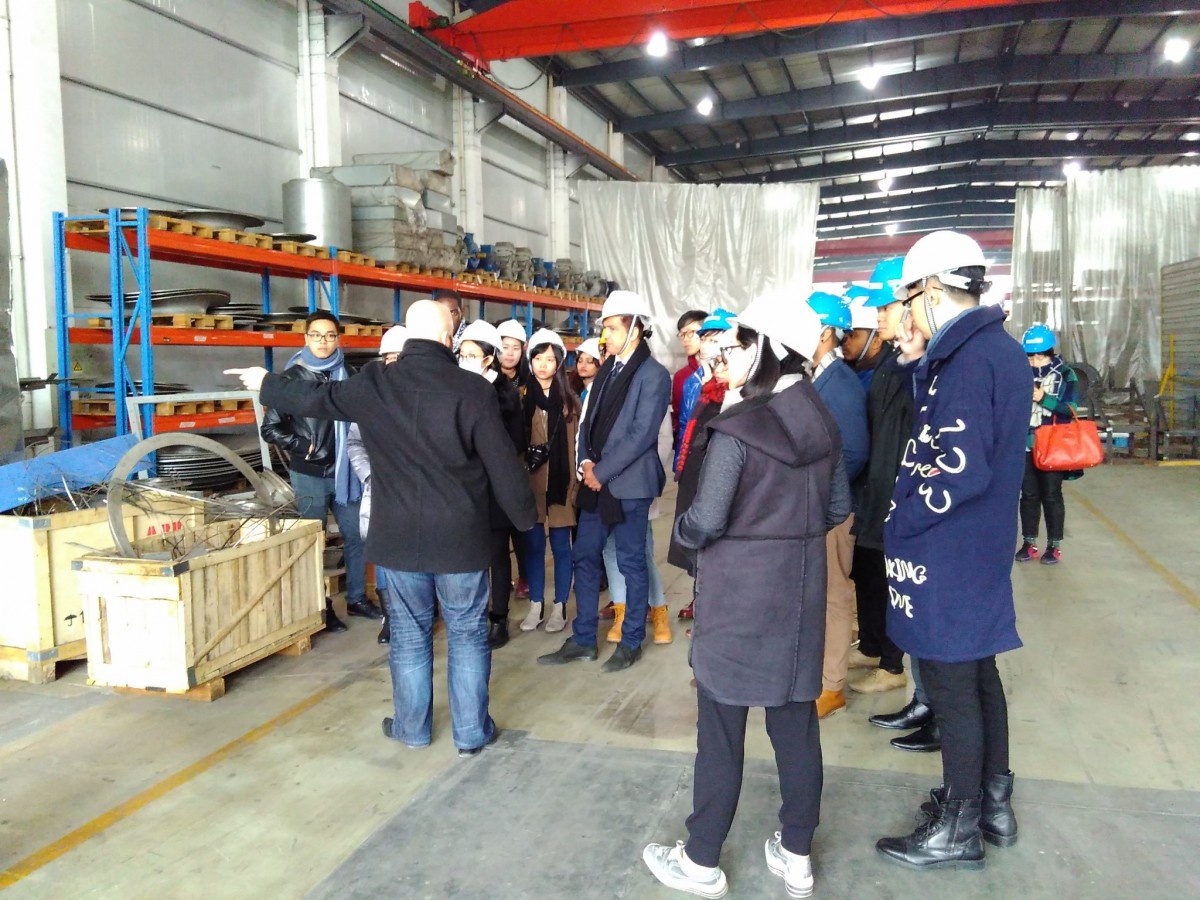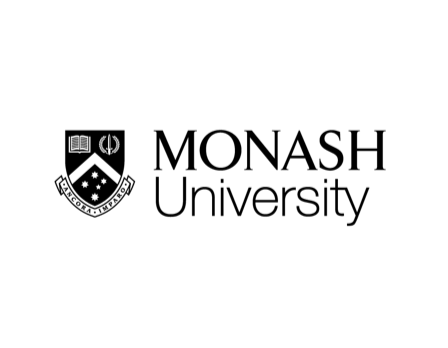At university, there’s so much more to the learning experience than what you learn from the pages of a textbook. Students have a lot to gain from getting involved in volunteering and internships, which complements what they’ve learned in class and helps them further develop their knowledge and expertise.
Such experiences also improve a graduate’s chances of standing out from other applicants when it comes to applying for jobs. For most employers, besides academic achievement, they like to look at a prospective employee’s engagement with extracurricular and volunteer activities in order to get a read on their interests and personalities.
Deloitte, one of the largest professional services firms in the world, released its 2016 Impact Survey, which found that volunteering experience may play a big role in building leadership skills that are considered ‘must-haves’ for successful leaders.
![]()
An experiential learning environment where students learn investment trading activities. Image courtesy of Monash University Malaysia
The survey interviewed 2,506 respondents across the U.S. who are currently employed within a company and have the ability to either directly influence hiring or indirectly influence the person making the hiring decision.
Among the respondents, 82 percent said they would be more likely to choose a candidate with volunteer experience on their résumé, and 85 percent admitted that they were willing to overlook other résumé flaws when a candidate includes volunteer work on a résumé.
Besides being beneficial in securing a job, being an active volunteer can also help you advance in your career: up to 80 percent of survey respondents agreed that active volunteers move into leadership roles more easily.
Despite the obvious benefits, not all universities make it a priority to get students learning outside of the classroom. At Monash University Malaysia, however, both staff and students understand these advantages, and students are actively encouraged to be inquisitive and explore the wider world.

Monash Malaysia’s Head of the School of Business, Professor John Benson, said: “We should not just simply focus on how many times our research is referenced, or the quality of the journals our publications appear in, although these are important measures of quality. We should always challenge ourselves to find ways to improve the lives of all Malaysians and the citizens of other countries.”
He believes in producing well-rounded graduates and encourages students to join clubs and societies throughout their student life. This way, students easily – sometimes subconsciously – pick up leadership and teamwork skills that perfectly prepare them for success in the business world.
“At the School of Business, we develop our students not just academically, but also holistically. Coming to university is not only about attending lectures, reading books and passing exams. We want our students and researchers to be able to stretch themselves, and to be the very best that they can be,” he added.
So how does Monash Malaysia produce graduates who are not only book-smart, but world-wise? Here are some of the ways its students are picking up useful experiences that will help them succeed in life:
Engage with movers and shakers in the industry
![]()
International study tour abroad -for MIB students to have a global business overview. Image courtesy of Monash University Malaysia
Students of Monash Malaysia’s School of Business get the unique advantage of its many strong networks with industry – not only in Malaysia, but overseas as well. In the past, it has worked closely with prominent companies such as Unilever, Nestlé, L’Oréal, Citibank, the Islamic Development Bank, and even the Dubai government.
Students are able to gain real-world experience from a wide range of companies and organizations that have been brought on board as partners and educators via the School’s internship programs, work placement programs, and also as living case studies. This allows students to learn first-hand from business giants who have years of experience under their belt, as well as to establish valuable industry connections.
Top business leaders and experts are regularly invited to campus for industry talks and seminars. For example, Dr. Peter Thong, who has decades of experience as CEO at multi-national corporations in China, recently gave a talk to students regarding the strategies implemented by China to help its people climb out of poverty and how this can teach students valuable life lessons.
Monash Malaysia also places emphasis on developing global perspectives. Every year, students in the Master of International Business and Master of Business Administration courses have the opportunity to go on international study tours, where they are able to meet with business leaders and government officials. From there, students begin to grasp the differences and similarities in how companies and agencies operate on a global scale, and especially within a cultural context.
The School of Business also has an Industry Advisory Board comprising active members within industry who advise the university on how to maintain an up-to-date curriculum which would best equip students with necessary skills and knowledge, as well as to inform them of what future employers are looking for.
Develop your competitive spirit
![]()
Visiting factories to learn to Just-in-Time manufacturing processes for the MIB students. Image courtesy of Monash University Malaysia
Monash Malaysia aims to cultivate the spirit of competition among its students by encouraging them to take part in contests organized by key industry players. For instance, two teams from the University emerged in the top three for the L’Oreal Brandstorm Malaysia 2015 finals. Team Imparo and Team Innoception placed first and third, respectively. The champions won an all-expense-paid trip to Paris, where they represented Malaysia at the international finals against 44 other national teams.
For the competition, teams were required to come up with a detailed travel retail experience for global shoppers, which included developing a digital campaign, advertising strategy, and store layout.
Team Imparo’s leader, Shannon Dorothy, had this to say about her experience: “Through the competition, I was exposed to the working world, and it was an experience to apply what was learnt in the classroom into a current work situation.”
Four students from the School of Business also walked away with a cool RM10,000 in cash when they were named first runners-up in the HSBC Business Case competition last year. According to the team, their success was due to their diverse knowledge and skillsets, which they claim greatly complemented one another.
One of the team’s members, Chang Foo Khang, said: “Through this, we were trained on how to give impromptu presentations, as well as how to present under stress. We learned many things in the Business course, but only when we applied them did we understand what was taught in the classroom.”
Their mentor, Associate Professor Jane Tong from the School of Business, said that students who participate in competitions really benefit from the experience, gaining confidence, learning teamwork, sharpening presentation skills, and generally adding to their resume.
Give back to the community
![]()
Lecturers contributing in a volunteering project, together with the students for the Positive Living Community. Image courtesy of Monash University Malaysia
There’s a spirit of community and volunteerism that is very much alive at Monash Malaysia. The Monash University Volunteer Program (MUVP), founded and run by students, gives members the opportunity to volunteer and make a difference in society through Community Development programs and collaborations with Non-Governmental Organizations (NGOs).
Speaking to Asian Correspondent, Associate Professor Grace Lee Hooi Yean, who is also chairperson for Monash Volunteers, said that for most students, getting involved in volunteer work was an “eye-opening experience”.
“Some of them have told us that though they had initially signed up just to get the certificate, taking part in the program proved to be an uplifting experience for them – not only did volunteering change how they see the world, but it also taught them not to take things for granted.
“Through volunteering, students get to understand that beyond academic achievement, values such as empathy and compassion are also important things to possess,” she said.
Students in the MUVP help out at partner organizations on a weekly basis, and as they come from various disciplines, they are able to put the knowledge they learn to good use.
For example, Business students may be asked to formulate business plans, Engineering students can come up with improved designs for facilities, and students in Medicine can use their expertise to treat the disadvantaged.
Known as skills-based volunteering, this type of volunteer work is the most preferred among employers, according to the previously mentioned Deloitte survey.
The survey found that most respondents believed that out of all other types of volunteer work, it “improves communications skills” (85 percent), “strengthens accountability and commitment” (85 percent), and “helps individuals develop strong character” (88 percent) – which are all identified as essential traits for top leaders.
![]()
The community appreciating the work of the student volunteers, led by Associate Professor Lee. Image courtesy of Monash University Malaysia
Associate Professor Lee added that as Monash was a research-intensive university, there were quite a few research projects that could prove useful for their volunteer work.
“Right now, we’re looking at perhaps using virtual rehabilitation to turn physiotherapy sessions into a game, which makes it more fun for children who have to undergo such treatment. This is something which may help refugee children suffering from limited motor function,” she said.
Besides that, the MUVP committee also organizes activities to raise public awareness and fundraise for various causes. Last year, Monash Malaysia staff and students took part in a futsal match against the CIMB Pan-Disability Football Club.
Professor Benson commented that he was surprised and impressed by the level of involvement he’s seen from the students at Monash Malaysia.
“I haven’t seen anything like this before,” he said, adding that it was crucial to get students involved in the university outside of the academic environment.
“We encourage students to invest in the university and take ownership of their experience here, and from that, we have been able to produce self-motivated individuals who are innovative and adaptable,” he said.
Thanks to these meaningful and broadening experiences, it’s no wonder that graduates from Monash Malaysia are highly-regarded on all four corners of the globe.
















